Politics
Trump scraps India visit amid escalating trade tensions: report
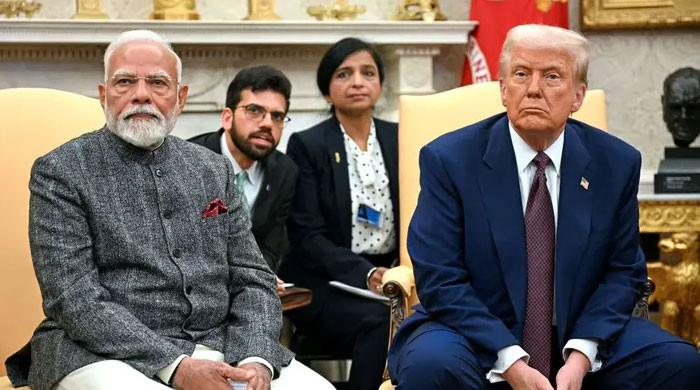
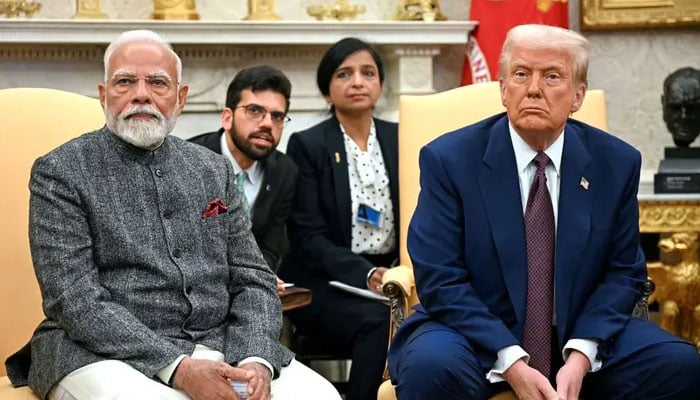
- Trump was earlier scheduled to attend Quad summit in India.
- Tensions between Trump, Modi deepened after June phone call.
- Modi since shifted focus toward alternative partnerships.
US President Donald Trump has dropped plan to visit India later this year, as trade frictions and political disagreements strain relations between Washington and New Delhi, the New York Times reported, citing people familiar with the matter.
The development comes after months of escalating tensions, with both sides struggling to make progress on trade talks. In recent weeks, the United States doubled tariffs on Indian goods to as high as 50% over India’s continuing imports of Russian oil.
A punitive 25% tariff, imposed due to India’s purchases of Russian oil, was added to Trump’s prior 25% tariff on many imports from the South Asian nation. It takes total duties as high as 50% for goods as varied as garments, gems and jewellery, footwear, sporting goods, furniture and chemicals — among the highest imposed by the US and roughly on par with Brazil and China.
According to people familiar with the matter, Trump had earlier assured Prime Minister Narendra Modi that he would attend a Quad summit in India later this year. However, the visit has now been removed from his schedule.
The cancellation reflects a sharp downturn in the relationship between the two leaders, who once publicly celebrated their partnership at mass rallies in Houston and Gujarat.
Tensions between Trump and Modi deepened after a June phone call, during which the US president claimed personal credit for defusing military hostilities between India and Pakistan earlier this year.
Trump said that Pakistan was set to nominate him for the Nobel Peace Prize and implied that India should consider doing the same. Modi rejected the claim, insisting that the ceasefire had been arranged directly between New Delhi and Islamabad without American mediation.
The disagreement coincided with worsening trade friction. Indian officials had hoped to finalise a limited trade deal to ease tariff pressure, but talks collapsed amid growing mistrust.
Washington’s measures have unsettled New Delhi, where Trump’s actions are increasingly seen as heavy-handed. One senior Indian official described the approach as “bullying.”
Modi has since shifted focus toward alternative partnerships. He arrived in China today to meet President Xi Jinping and Russian President Vladimir Putin, signalling India’s intent to balance ties as relations with Washington sour.
The White House has maintained that the two leaders retain a “respectful relationship” and remain in communication. However, the absence of a US presidential visit is widely viewed as a setback for bilateral ties at a time when both nations face crucial economic and security challenges.
Politics
Key Iranian figures martyred in US-Israel military strikes
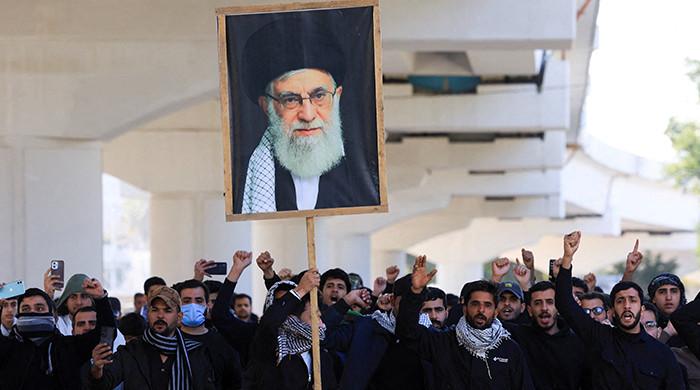
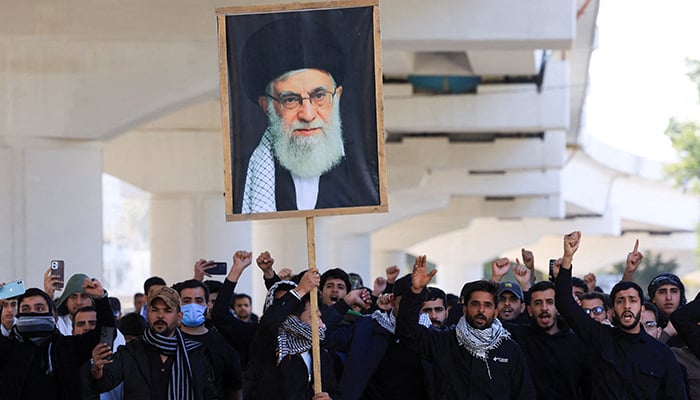
A number of Iranian senior leaders, including Supreme Leader Ayatollah Ali Khamenei, have embraced martyrdom in the “unprovoked and unwarranted” airstrikes by Israel and the United States.
As crowds gathered in Tehran, explosions rang out, and the Israeli military announced that it was again striking targets in the heart of the city — as more blasts were heard in Jerusalem, Riyadh, Dubai, Doha and Manama.
Iran’s President Masoud Pezeshkian declared Khamenei’s assassination a “declaration of war against Muslims” and warned: “Iran considers it its legitimate duty and right to avenge the perpetrators and masterminds of this historic crime.”
Iranian state media have confirmed the killing of several senior figures:
1. Ayatollah Ali Khamenei, supreme leader of Iran
2. Ali Shamkhani, representative of the Supreme Leader in the Supreme Defence Council
3. General Abdolrahim Mousavi, Iran’s Armed Forces chief of staff
4. Major General Mohammad Pakpour, commander-in-chief of the Islamic Revolution Guards Corps (IRGC)
5. Aziz Nasirzadeh, Minister of Defence
6. Gholamreza Rezaian, police intelligence chief of Iran
Separately, the daughter, son-in-law, and granddaughter of Ali Khamenei also embraced martyrdom in the US and Israeli airstrikes.
Politics
Iran to continue acting in self-defense until enemy’s aggression ends: UN envoy
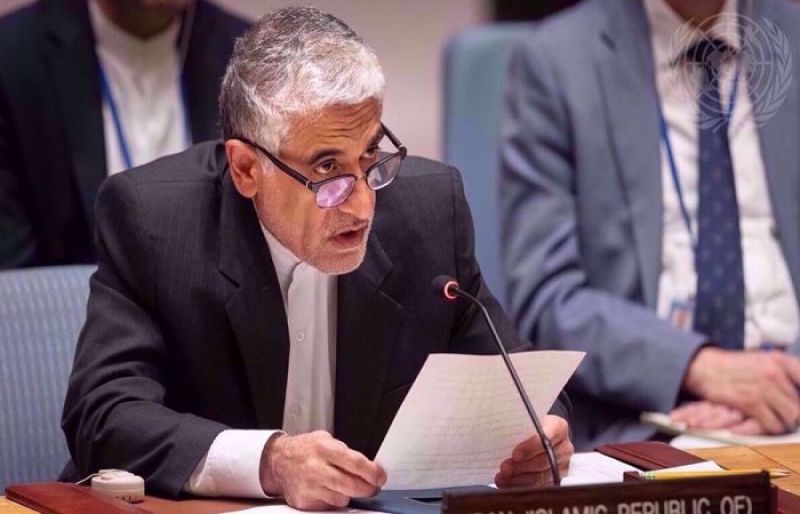

Iran’s permanent ambassador to the United Nations has vehemently denounced the fresh and unprovoked Israeli-American war on the Islamic Republic, asserting that the country will continue to act in self-defense until the end of the unlawful aggression.
Amir-Saeid Iravani made the remarks at a UN Security Council meeting on Sunday regarding the joint strikes that were launched against the country earlier on Saturday.
The nation, he stated, was facing armed aggression and a war against international law, which could not be justified by any excuse.
Referring to Iran’s decisive and ongoing retaliatory strikes, under the codename Operation True Promise 4, the envoy said it serves as a legitimate act of self-defense.
The Islamic Republic would continue to exercise its legitimate right to self-defense until the aggression ends, Iravani told the world body.
The Islamic Revolution Guards Corps (IRGC) has so far launched at least five waves of counterstrikes against numerous Israeli and American targets in response to the aggression.
IRGC has pledged to sustain the counterstrikes until the enemies’ “complete defeat,” while noting that the reprisal exceeds by far the proportions of its previous round of retaliations against Tel Aviv’s and Washington’s imposed war on the nation last June.
Addressing the same meeting, Russia’s UN envoy said Iran had been once again “stabbed in the back,” referring to the country’s coming under fresh aggression, while engaging in indirect talks with the United States aimed at resolving standing issues.
Vasily Nebenzya condemned an attack on a school in Iran that took place as part of the renewed aggression, claiming the lives of more than 100 people, calling it a sign of “unjustified aggression” by the Israeli regime and the United States against a UN member state.
He described the atrocities as “unjustifiable” and a “betrayal of diplomacy.”
Politics
Blast at India explosives factory kills 17
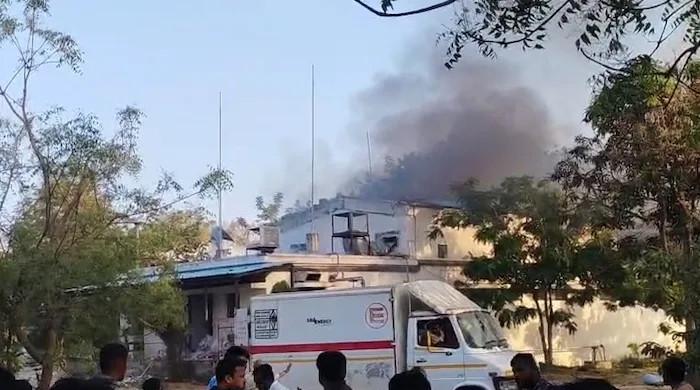
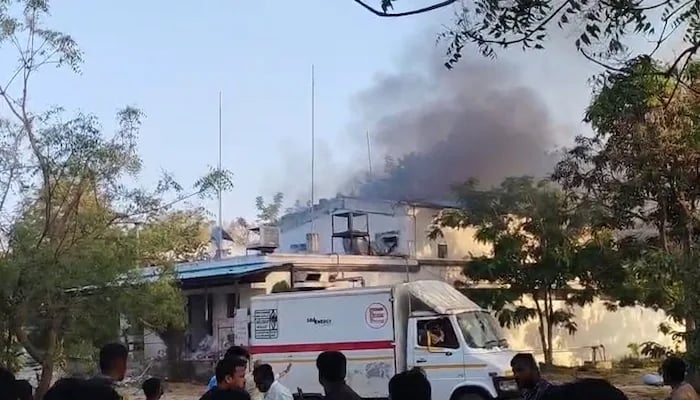
- PM Modi describes accident as “deeply distressing”.
- Maharashtra CM terms it “extremely unfortunate.”
- Industrial accidents are common in India.
A blast at an explosives factory killed at least 17 people and injured 18 others on Sunday, officials in the western Indian state of Maharashtra said.
Prime Minister Narendra Modi said the accident was “deeply distressing” and wished a speedy recovery to the survivors.
Maharashtra state chief minister Devendra Fadnavis called the incident “extremely unfortunate and tragic” in a post on X.
The accident happened in Nagpur, about 800 kilometres (500 miles) from state capital Mumbai.
“Rescue operations have been accelerated, and so far, 17 people have lost their lives,” Fadnavis said, adding 18 others were injured.
An investigation has been ordered into the incident.
On Saturday, 21 people were killed in an explosion at a firecracker factory in the southeastern Indian state of Andhra Pradesh.
Industrial accidents are common in India, often due to disregard for safety requirements and lax enforcement.
Last year, a firework factory explosion in western India killed 21 people.
-

 Business1 week ago
Business1 week agoUS Top Court Blocks Trump’s Tariff Orders: Does It Mean Zero Duties For Indian Goods?
-

 Fashion1 week ago
Fashion1 week agoICE cotton ticks higher on crude oil rally
-

 Entertainment1 week ago
Entertainment1 week agoThe White Lotus” creator Mike White reflects on his time on “Survivor
-

 Business1 week ago
Business1 week agoEye-popping rise in one year: Betting on just gold and silver for long-term wealth creation? Think again! – The Times of India
-

 Politics1 week ago
Politics1 week agoPakistan carries out precision strikes on seven militant hideouts in Afghanistan
-

 Sports1 week ago
Sports1 week agoBrett Favre blasts NFL for no longer appealing to ‘true’ fans: ‘There’s been a slight shift’
-
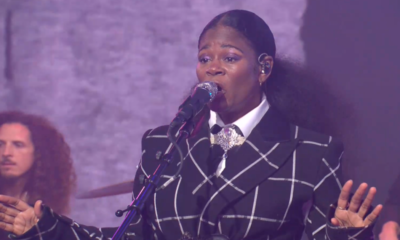
 Entertainment1 week ago
Entertainment1 week agoSaturday Sessions: Say She She performs "Under the Sun"
-

 Entertainment1 week ago
Entertainment1 week agoViral monkey Punch makes IKEA toy global sensation: Here’s what it costs






